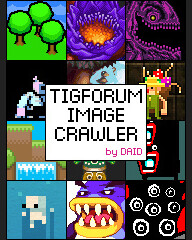Casual Games, Cloning, and Discussion Thereof
By: Derek Yu
On: November 30th, 2007
Russell Carroll, all around nice guy, marketing director at Reflexive, and the webmaster of Game Tunnel, has an interesting op-ed on Gamasutra called “”http://www.gamasutra.com/php-bin/news_index.php?story=16426">Cloning Created the Casual Business." In it he talks about the impact of cloning on the casual games industry (now apparently worth $2.25 billion).
Russ reveals that the average Hidden Object game on Reflexive sells roughly 3 games to the sale of every average “original” title. I think this indicates that clones can sell. It doesn’t, however, convince me that they sell better than original games (note: which is not the argument Russ is trying to make), since a number of important comparisons are overlooked, such as the sales of clones to the originals that spawned them. Nor does it speak to the quality of the original games that didn’t sell so well. I think clones are just easier to make, and probably give a better return on investment than your average original game, which is why people make them.
It’s interesting to note that Digital Eel, the developers behind Strange Adventures in Infinite Space, have just made two more of their games free, and have also released a $10 casual matching game, Soup du Jour. The game has a neat physics-ey aspect, but it seems like quite a deviation from their other games, so I wonder…
My attitude about casual games has vacillated from derision, to indifference, to some appreciation (for bringing in non-gamers to the fold, so to speak). Now, I think it’s a bit of all three. I still hope that “core” and “hardcore” developers will not see casual cloning as an easy way out. My belief is still that a good original game will outsell any clone, and creating an original title has side benefits, like curing cancer.
I’m serious, they did a study where they placed two monkeys with cancer in a basement and had them make games. One monkey made a clone of Diner Dash, and the other made an original title about dealing with cancer as a monkey. The Diner Dash monkey died after a week with a tumor the size of a minivan, and the other monkey survived and lived a long and prosperous life! Look it up on the internet.
Anyway, thanks, Russ, for the article, and I hope to see more like it!
-
Agatha Christie
-
BigBossSNK
-
rinkuhero
-
Palad
-
BigBossSNK
-
moi
-
ZombiePixel
-
rinkuhero
-
JP
-
krinkle
-
failrate
-
Anthony Flack



